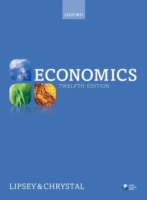- ホーム
- > 洋書
- > 英文書
- > Business / Economics
Full Description
Establishing economic property rights is a ubiquitous human activity that is key to the creation of wealth. Why the Rush? combines economic and historical analysis to argue that the institution of homesteading, as established in the US through the Homestead Act of 1862, was a method to establish meaningful, economic property rights on the American frontier. It explains how homesteading rushed millions of people into specific areas, established a meaningful sovereignty without the use of military force and became the means by which the US Thwarted military and legal challenges. Using fine-grained data, along with a detailed theoretical analysis and exhaustive institutional content, this book makes a serious contribution to the study of economic property rights and institutions providing the definitive analysis of the economics of homesteading and its role in American economic history.
Contents
1. Introduction; Part I. Homesteading Fundamentals: 2. Homesteading basics; 3. The theory of homestead land grants; Part II. Three Periods of Homesteading: 4. Homesteading, the civil war, and the south: 1862-1871; 5. Railroads and early homesteading: 1862-1890; 6. Late homesteading and tribal land dispossession: 1890-1934; Part III. Homesteading Special Cases: 7. The Oklahoma land rushes; 8. Homesteading in Canada; Part IV. Homesteading and the Long Run: 9. Homesteading and modern land development; 10. Cultural and political dimensions of homesteading; 11. Conclusion.






